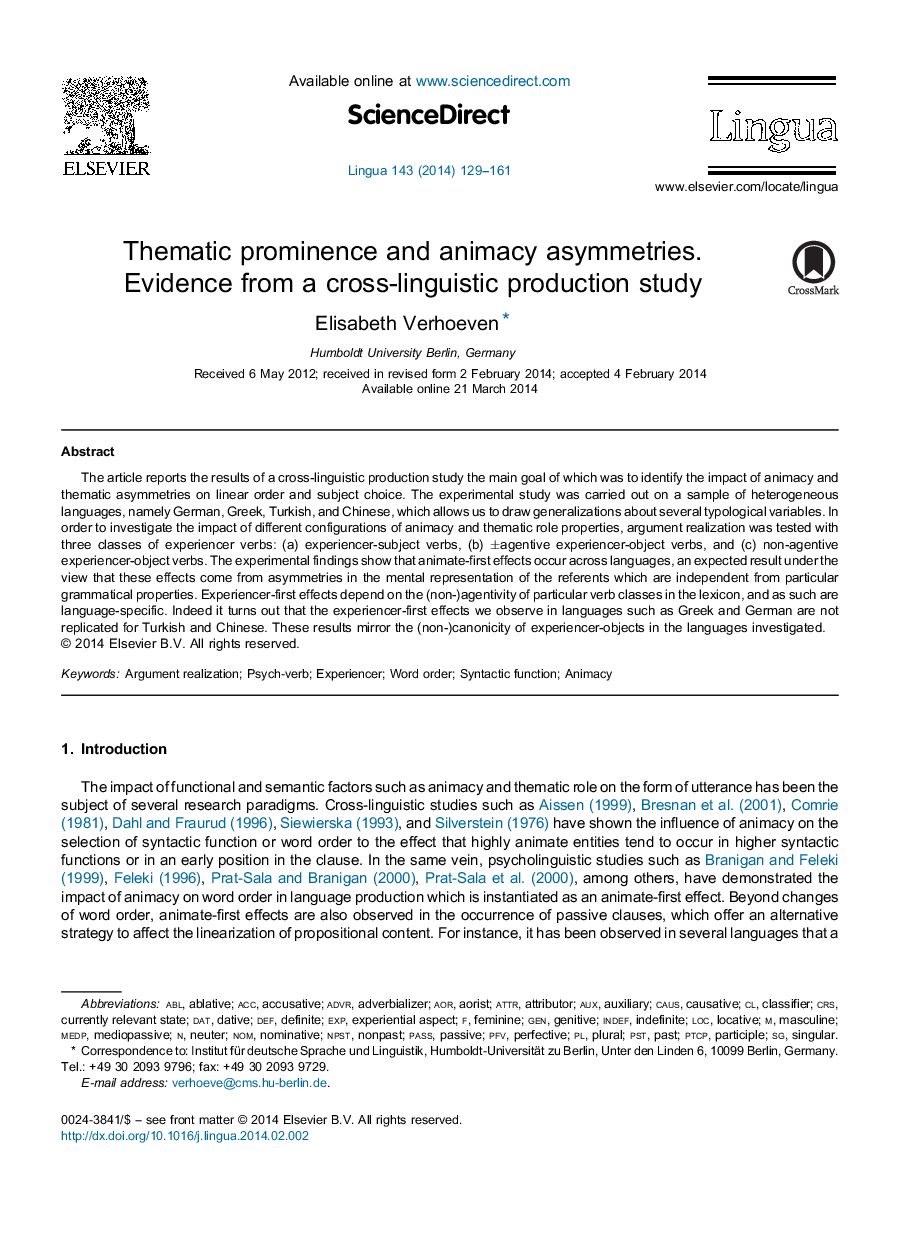| Article ID | Journal | Published Year | Pages | File Type |
|---|---|---|---|---|
| 935508 | Lingua | 2014 | 33 Pages |
•We present a parallel cross-linguistic production study on psych-verbs.•Animate-first effects occur across languages.•Experiencer-first effects depend on the non-agentivity of particular verb classes.•Experiencer-first effects occur in German and Greek but not in Turkish and Chinese.•The results mirror the (non-)canonicity of experiencer-objects.
The article reports the results of a cross-linguistic production study the main goal of which was to identify the impact of animacy and thematic asymmetries on linear order and subject choice. The experimental study was carried out on a sample of heterogeneous languages, namely German, Greek, Turkish, and Chinese, which allows us to draw generalizations about several typological variables. In order to investigate the impact of different configurations of animacy and thematic role properties, argument realization was tested with three classes of experiencer verbs: (a) experiencer-subject verbs, (b) ±agentive experiencer-object verbs, and (c) non-agentive experiencer-object verbs. The experimental findings show that animate-first effects occur across languages, an expected result under the view that these effects come from asymmetries in the mental representation of the referents which are independent from particular grammatical properties. Experiencer-first effects depend on the (non-)agentivity of particular verb classes in the lexicon, and as such are language-specific. Indeed it turns out that the experiencer-first effects we observe in languages such as Greek and German are not replicated for Turkish and Chinese. These results mirror the (non-)canonicity of experiencer-objects in the languages investigated.
